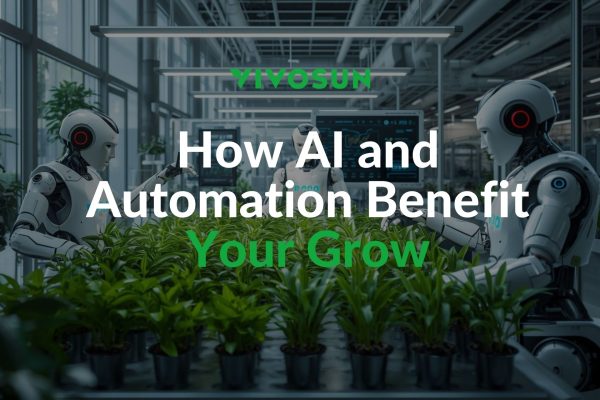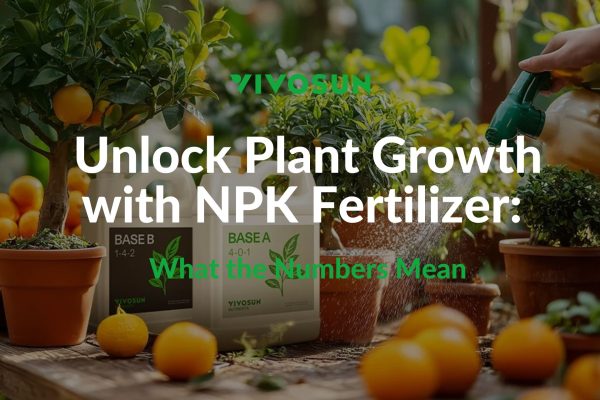Table of Contents
Like all plants, the healthy growth and development of cannabis require nutrients, and sometimes a lot of them! This article intends to introduce some basic knowledge about fertilizers for better plant growth.

What Is A Fertilizer? – Classifying Fertilizers
“Fertilizer” is a catch-all term for types of chemical compounds that are found in soil that help plants grow. We subdivide fertilizers into two categories, which can make it easier to understand what a fertilizer is, these categories are organic and inorganic fertilizers.
Organic Fertilizers
Natural fertilizers that come from decaying organic material such as manure, eggshells, fish wastewater, animal feces, or leaves are called organic fertilizers. They increase the naturally occurring bacteria in the soil, which converts this organic material into minerals that can be used by plants. Organic fertilizers are the natural way to fertilize plants.
Advantages of Organic Fertilizers
- Improve the physical, chemical, and biological properties of soil
- They provide a lot of different kinds of nutrients
- They last a long time and stay in the soil for a long time
- There are known ecological benefits to using natural fertilizers
Disadvantages of Organic Fertilizers
- When there aren’t a lot of nutrients in the organic fertilizer, they tend to decompose slowly
- The amount of nutrients contained in organic fertilizers can be inconsistent, they don’t have specific kinds of nutrients that are guaranteed, so it can be difficult to plan accordingly, especially with indoor plants
- Compared with inorganic fertilizers, organic fertilizers are much more expensive because of the cost of production
- Organic fertilizers can contain pathogens that are harmful to plants, while this may not be such a big issue for outdoor plants, indoor plants have a weaker immune system and can have trouble combating pathogens
Inorganic Fertilizers
Fertilizers that are synthesized by removing chemicals from a complex form are called inorganic fertilizers. Basically, inorganic fertilizers are the isolated chemical that your plant needs to grow, nothing more, nothing less. They usually come in liquid form and are multiple types of chemicals combined into a single mixture, these normally include Nitrogen (N), Phosphorous (P), and Potassium (K), which are the macronutrients that plants require to grow. Essentially, it is the exact same nutrients that are found in organic fertilizers but in higher concentrations.
Advantages of Inorganic Fertilizers
- High nutrient content. For example, the nitrogen content for urea is 46%, while manure only -contains 0.4-0.5% nitrogen
- Inorganic fertilizers are faster and have a more significant impact on plants because they are absorbed quickly
- They have a long shelf life and can be saved for a long time
- The price is inexpensive, especially compared to organic nutrients because the process of developing them is relatively simple – they are raw minerals extracted from the earth
Disadvantages of Inorganic Fertilizers
- The variety of minerals found in inorganic fertilizers is relatively limited compared to organic fertilizers, which tend to contain all macro and micronutrients
- You need to be careful how you develop and use fertilizers because too much can be dangerous to your plant
- Inorganic fertilizers don’t stay in the soil for long so you’ll need to reapply them occasionally, which means you risk over-fertilizing your plants
- Chemical fertilizers don’t improve soil quality and structure – on the contrary, too much fertilizer can cause soil compaction and the high salinity will damage or kill your plant
Solid versus Liquid Fertilizers
Soil fertilizers are granular, powder-like fertilizers that have been extracted directly from the earth and packaged. Liquid fertilizers are essentially the same as solid but they are sold in bottles, having been pre-mixed into water.

Advantages of Liquid Fertilizers
- Excellent water solubility so you can mix it into your water as you water your plant
- Mixes very well with other minerals and liquids
- The quality is relatively consistent and you can safely guess the amount of nutrients in a specific dose
- The liquid absorbs quicker into plants, so plants can make use of them faster
Advantages of Solid Fertilizers
- Solid fertilizers are usually cheaper when compared to liquid fertilizers
- Solid fertilizers have the longest shelf life of all fertilizers
- Some slow-release granular fertilizers have longer fertilizer effect periods than liquid fertilizers and don’t require frequent reapplications
Whichever fertilizer you choose to use, you’ll find that it can be extremely helpful in growing a healthy plant. Everything has its own advantages and disadvantages, it’s just a matter of which works best for you.
As always if you have any questions you can message our Instagram or Facebook and we’ll be glad to help you out! We’re happy you’re on this journey and we want to help in any way we can.







